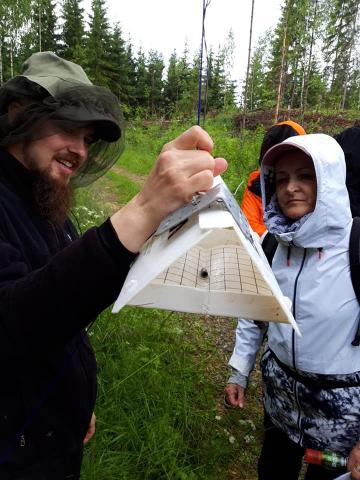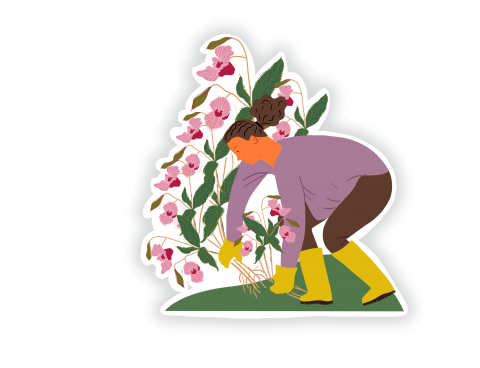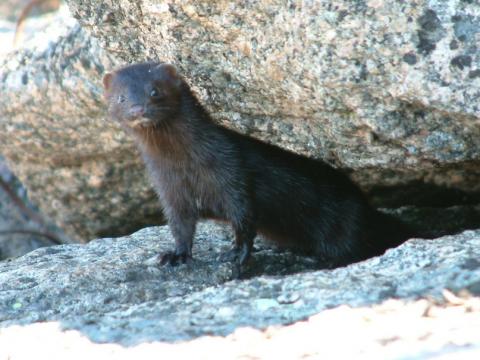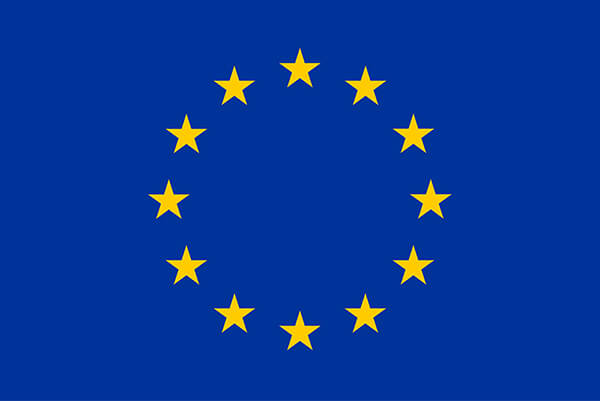Collaborative Data and Information Exchange Network for Managing Invasive Alien Species - DIAS
DIAS
The project targets creating a sustainable, interoperable and open data and knowledge exchange network between Finnish and Karelian government officials, researchers and citizen (NGOs), to tackle threats posed by invasive alien species.
Project news
Project summary
Invasive alien species (IAS) are species whose introduction and/or spread outside their natural distribution threatens biological diversity by out-competing native species. They can also cause other impacts in their new environment; these consist of health problems, spreading diseases or parasites to humans and farm animals, the species can also be pests to cultivated crops or forests. For example many invasive plants were originally introduced by purpose to gardens or cultivated for fodder, but they have escaped to surrounding nature and are spreading further causing remarkable threat to biodiversity. They can outcompete and displace indigenous species in wild.
As species will not stop at the borders, alien species are recognized as a global problem. In November 2014, the European Union published a new Regulation on Invasive Alien Species. The Regulation establishes a coordinated EU-wide framework for action to prevent, minimise and mitigate the adverse impacts of IAS on biodiversity and ecosystems, and limit their damage to the economy and human health.
Currently Finland has built connections and aligning its laws and regulations with EU invasive alien species directive by adopting its early warning mechanism and connecting the Finnish ict-infrastructure to international data-portals like EASIN and GBIF. However, most beneficial direction for collaboration to tackle the problem is missing. The expected change this project is going to make is to create mechanisms and protocols between Finland and Russian Karelia in dealing with IAS. Importantly, the aim is also to align these actions with the EU policy and also to help local officials on both sides of the border to create joint risk assessments for most important species, communicate future potential risk species (both alien and invasive species) and create management guidelines.
About us
Finnish Environment Institute - SYKE
SYKE's researchers analyse and predict changes in the environment including biodiversity and sustainability. Monitoring effects of invasive alien species to biodiversity lies in the core tasks of SYKE. SYKE has multidisciplinary expertise to cover all the tasks of the project, data collection, eradication and communication. SYKEs experts have been leading national projects where the current IAS portal has been constructed. Their expertise will benefit constructing corresponding activities to Russian Karelia. According to SYKEs current strategy SYKE develops the possibilities of sustainable livelihoods.
Natural Resources Institute Finland - Luke
Luke is a partner and participates in all the activities of the project. Tasks of Luke are to produce information about invasive alien species observations to the data base. Another task is distribute and exchange knowledge about invasive alien species.
Survey of invasive alien species is one of Luke's official tasks according to the national legislation. Other official tasks are for example surveying of forest pests and diseases and damage prognoses of them. Regulating game and fishery affairs is also included in Lukes official responsibilities and invasive alien species affect them. According to Lukes current strategy we develop sustainable local livelihoods.
Karelian Research Centre of the Russian Academy of Sciences (KarRC RAS)
Karelian Research Centre, RAS is a complex of research institutions with a common infrastructure which carry out basic and applied research intended to comprehensively study natural resources, to solve ecological, economic, power- engineering, social, language, historical, cultural and other problems of Republic of Karelia and adjacent territories.
The Centre comprises 7 Institutes (of Biology; Water Problems of the North; Geology; Economic Studies; Language, Literature and History; Forest Research Institute, Institute of Applied Mathematics Research), as well as a complex of subsidiary services.
The Centre employs about 790 people including 388 researchers with 74 Doctors (DSc) and 229 Candidates (PhD) of Science. Karelian Research Centre is financed through the federal budget. At the moment Karelian Research Centre, RAS is one of the leading scientific institutions in the North-West of Russia which carries out large-scale complex research which requires interdisciplinary approach.
Finnish Environment Institute - SYKE
Anne Holma
Position: Project manager
Email: anne.holma@syke.fi
Natural Resources Institute - Luke
Sannakajsa Velmala
Position: Project Manager, Research Scientist, Postdoctoral Researcher
Email: sannakajsa.velmala@luke.fi
Shorokhova Ekaterina
Position: Project Specialist, Researcher
Email: Ekaterina.Shorokhova@luke.fi
Karelian Research Centre, RAS
Nadezhda Mikhailova
Position: Senior specialist, International affairs, Department of Multidisciplinary Scientific Research
Email: mikhailova@krc.karelia.ru







